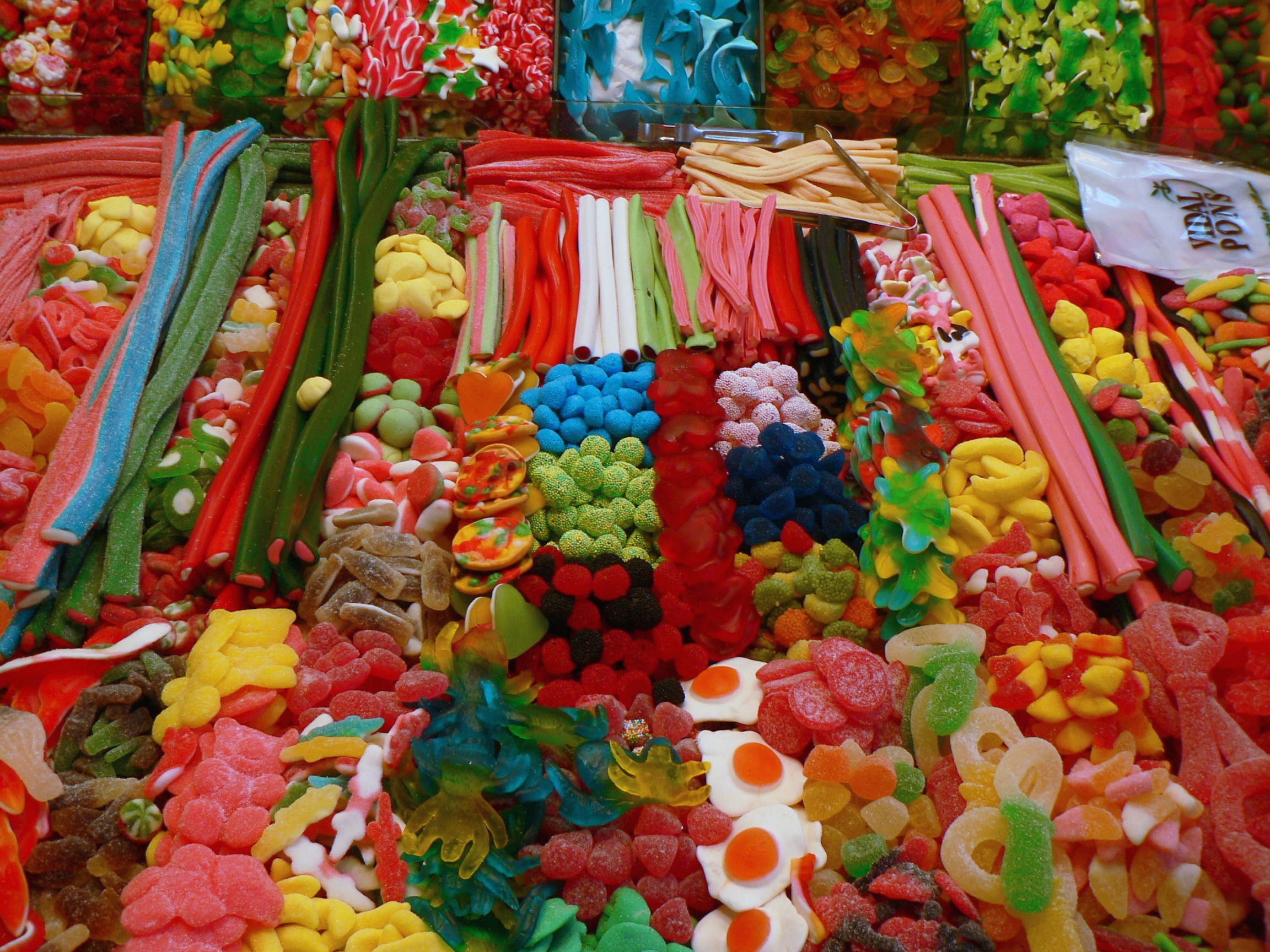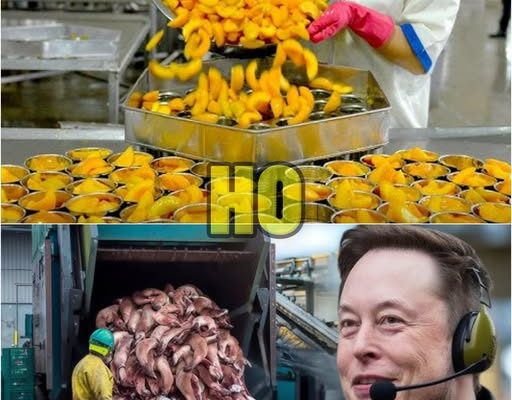What if everything you thought you knew about everyday products was wrong? Hidden secrets, exposed by industry insiders and even Elon Musk, reveal shocking truths about the items we use without a second thought.
From the depths of the ocean to your kitchen counter, these revelations are enough to make anyone question what’s really in their cart. How safe are the things we consume daily? What’s really lurking behind those familiar labels? Could a simple trip to the store change the way we look at everything?

Elon Musk is known for his forward-thinking and willingness to challenge the status quo. In an interview, he made an eye-opening statement about the products we consume daily, claiming that if we knew what they were really made of, we would stop eating them immediately.
From the depths of the ocean to our kitchen counters, Musk’s revelations shed light on some of the most popular yet questionable food products. His argument? Ignorance is no longer an excuse, and we should be more mindful of what we put in our bodies. Let’s dive into some of the shocking truths behind 15 everyday products that Musk believes we should reconsider.
1. Seafood: The Truth Behind the Oceans
The seafood industry may seem pristine, but the reality is far from it. Musk revealed that after learning the truth about how seafood is harvested, he could no longer enjoy his favorite dish. Industrial fishing fleets use massive trawlers that often target endangered species and indiscriminately scoop up countless marine creatures.
These bycatch methods damage delicate ecosystems, pushing species to the brink of extinction. After capture, the fish are transported under grim conditions, often crammed into unsanitary, overcrowded environments. For many, the ethical and environmental costs are too much to overlook, leading to the call for more sustainable and humane seafood options.
2. Margarine: The Hidden Dangers
Margarine, often touted as a healthier alternative to butter, is far from innocent. The oils used to make margarine are heavily processed, involving high heat and chemical treatments like hydrogenation, which produces dangerous trans fats. These trans fats raise bad cholesterol and lower good cholesterol, leading to a higher risk of heart disease.
To top it off, margarine contains chemical solvents, bleaching agents, and artificial dyes to improve its appearance and texture. The oils themselves often come from genetically modified crops drenched in glyphosate, a chemical linked to environmental harm and serious health concerns.
3. Coffee: The Ugly Truth Behind Kopi Luwak
Kopi Luwak coffee, often marketed as an exotic luxury, may sound appealing due to its smoother taste, but its production process is deeply troubling. This coffee is made from beans passed through the digestive systems of civet cats. While this might sound like a quirky luxury, the commercial industry forces these animals into cramped cages, where they are subjected to an unnatural diet.
The stress and malnutrition these animals experience can be severe. What’s worse, over 80% of Kopi Luwak coffee sold globally is counterfeit, made from regular coffee beans that are sold at a premium price.
4. Burgers: The Hidden Ingredients
Fast food burgers, particularly those from large chains, are far from just a simple meat patty. Musk warns that a single fast food burger can contain over 1,000 calories, and that’s before adding fries and a soda. The patties themselves are rarely made from one cow; they often contain meat from several different animals, increasing the risk of contamination.
Furthermore, some burgers contain “pink slime”—ammonia-treated meat filler—which many consumers would find unappetizing if they knew what it was. The hidden fats, sodium, and preservatives also contribute to an increased risk of heart disease, obesity, and other chronic health issues.

5. Vanilla: More Than Just Sweetness
When you think of vanilla, you probably imagine the delicate flavor from vanilla orchids. However, Musk points out that the artificial vanilla flavor we consume today might come from beavers’ anal glands. This secretion, known as castoreum, has a vanilla-like scent and was historically used in food and fragrances. Although less common today, castoreum is still used in some products. More often, synthetic vanilla is derived from wood pulp or clove oil. These substitutes are far from the natural, labor-intensive vanilla pods that many people envision when indulging in vanilla-flavored treats.
6. Ketchup: A Hidden Danger
Ketchup might seem like an innocent condiment, but Musk argues that store-bought ketchup is filled with sugar, high fructose corn syrup, preservatives, and alarming levels of sodium. Just a few tablespoons can push you toward sugar overload, which can lead to weight gain and diabetes. The high sodium content also contributes to increased blood pressure and kidney damage over time. What’s more, the acidity in ketchup can irritate sensitive stomachs, leading to issues like acid reflux. Musk’s advice? Think twice before reaching for that bottle next time.
7. Red Dyes: Cochineal and Synthetic Dyes
The rich red hue in many foods and drinks might come from a surprising source: crushed insects. The cochineal insect, which is native to Peru and the Canary Islands, is used to produce carmine, a natural red dye. However, it takes around 70,000 insects to make just one pound of this pigment. While some may find the idea of consuming crushed bugs repulsive, the alternative is even worse: synthetic dyes like Red 40, derived from petroleum or coal tar, are linked to hyperactivity in children and other serious health issues.
8. Mushrooms: Maggots in Your Meal
The FDA allows a certain amount of contaminants in canned mushrooms, including maggots and mites. In a 600g batch, up to 20 maggots are permissible, with five allowed to exceed 2mm in length. While the FDA assures that these contaminants are harmless, the thought of consuming maggots is enough to make anyone reconsider. Fortunately, switching to fresh mushrooms can help you avoid these uninvited guests and ensure a healthier meal.
9. Bread: The Hair-raising Ingredient
Many people are unaware that some bread products contain a surprising ingredient: human hair. The amino acid lysine, which is used as a dough conditioner, can be sourced from human hair, often collected from barbershops in countries like China. While the FDA deems it safe, the thought of consuming hair might leave some feeling uneasy. If you’re concerned about such additives, consider purchasing bread from local bakeries or making your own at home to ensure you know exactly what’s in your loaf.
10. Shrimp: A Polluted Practice
Farmed shrimp, marketed as a sustainable solution to overfishing, is far from environmentally friendly. Shrimp farms, particularly in Southeast Asia and Central America, require the destruction of mangrove forests, which are crucial for carbon storage and wildlife habitats. The pollution from these farms contaminates nearby waters, harming marine life and ecosystems. Additionally, human trafficking and forced labor are reported in some shrimp farms, further raising ethical concerns.
11. Gummy Candy: Sugar, Gelatin, and Chemicals
Gummy candies, like Gummy Bears, are made from gelatin, sugar, and artificial additives. These ingredients are not easily digested, causing bloating and discomfort. The high sugar content can spike blood sugar levels, leading to crashes and potentially contributing to insulin resistance and diabetes. The artificial flavors and dyes used to create the vibrant colors and fruity taste are linked to hyperactivity in children and other health issues.

12. Hot Dogs: A Processed Meat Nightmare
Hot dogs, a beloved BBQ classic, are far from simple. They are made through a process called meat emulsion, where various animal parts, including gristle, fat, and even organs, are ground up and mixed with fats, spices, and curing agents. This mix is then treated with sodium nitrates, which have been linked to cancer risks, especially in the digestive tract. The high sodium content and unhealthy fats in hot dogs contribute to heart disease, high blood pressure, and obesity. Shockingly, some hot dogs even contain traces of human DNA, raising concerns about hygiene in the production process.
13. Chewing Gum: Lanolin in Your Mouth
Chewing gum might seem like a harmless treat, but many modern gums contain lanolin, a waxy substance derived from sheep’s wool. This ingredient helps to make gum chewy and is used in a wide range of products, from cosmetics to candies. Additionally, most gum contains synthetic materials like polybutene and polyvinyl acetate, substances also found in rubber and plastic. While chewing gum is not necessarily harmful in small amounts, it’s surprising to learn that something so common contains ingredients that most people would never expect.
14. Energy Drinks: A Dangerous Boost
Energy drinks might promise a quick pick-me-up, but Musk warns that they come with serious risks. High levels of caffeine, sugar, and artificial sweeteners can lead to dehydration, jitters, and difficulty sleeping. Over time, these drinks can contribute to weight gain, insulin resistance, and dental issues. The American Academy of Pediatrics even advises against energy drinks for children and teens due to their stimulant effects, which can lead to heart problems and anxiety.
15. Farm-Raised Fish: A Deceptive Dinner
Fish sticks, a convenient and nostalgic meal, are often made from farmed fish. Unfortunately, these farms are notorious for overcrowding, unsanitary conditions, and unhealthy diets. Farmed fish often lack the heart-healthy omega-3 fatty acids that wild fish provide, and the environmental impact of these farms is significant, with chemicals and waste polluting local waters. The fish used in these products may also be fried in unhealthy fats, contributing to heart disease and other health issues.
In conclusion, Elon Musk’s revelations about the hidden truths behind everyday products should serve as a wake-up call. The next time you pick up something off the shelf, take a moment to consider what’s really in it. By being more informed and demanding better practices, we can make healthier, more ethical choices for ourselves and the environment. Stay curious, stay vigilant, and question everything.



